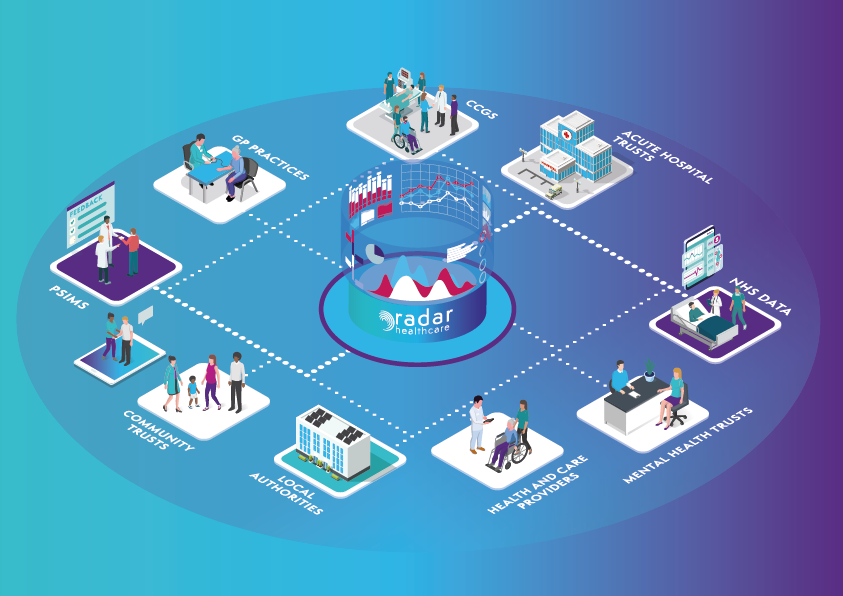Integrated Care: a digital approach to supporting the development of ICSs
02 March 2021
Tags:


The strategic direction of the NHS in England is moving further towards integrated care systems (ICSs), with the aim of improving citizen and patient outcomes and creating a more efficient, sustainable health and care system. As technology providers to the NHS, we have been reflecting on the recently published NHS England document ‘Integrating Care – The next steps to building strong and effective integrated care systems across England’ to understand how data and technology will play a critical role throughout this organisational change.
Overview
ICS proposals are based on four fundamental aims:
- To improve population health and healthcare;
- To tackle inequality of outcomes and access;
- To enhance productivity and value for money; and
- To help the NHS to support broader social and economic development.
As plans form to give ICSs a statutory footing from 2022, both local providers and at-scale provider collaborations will require appropriate governance frameworks to support the achievement and measurement of ambitions set out in the NHS Long Term Plan.
A data-driven approach
Smarter data-sharing systems will be critical, because an ICS will be reliant on its constituent parts to make it effective. From place-based arrangements for local decision-making to facilitating collaborations across larger footprints where there is a clear need to work at scale, it has never been more important to bring together siloed data to provide complete oversight across all parts of the system. In addition, data sharing will strengthen partnership working between local government, the NHS, public health and social care to deliver a more holistic approach to health and care.
A focus on operational delivery
It will also be essential that the operational delivery models of providers and provider collaborations are designed to be fit for purpose and monitored with the same standardised rigour to ensure a collective accountability between organisations. This will require varying levels of organisational change and service redesign, both of which can provide uncertainty and disruption before benefits are realised. To overcome this, robust systems to standardise processes and communicate change with the workforce will be critical for success.
Identifying partnership strengths
From performance and compliance to planning and risk management, data will be the key driver that supports this system-wide development and progression. Data will also directly inform the move to strategic commissioning to deliver a more population health, outcomes-based approach. Through closer monitoring of performance, sharing of information and collective management of risks, collaborative leaders will be able to more easily identify partnership strengths in order to shape the health and care priorities for the populations they serve.
Rise to the challenge
There is no doubt that developing strong and thriving systems at this scale will present many challenges as well as opportunities. The good news is that Radar Healthcare can support the NHS at ICS level to overcome many of these challenges with our integrated risk management system. Find out how our software aligns with ICS development plans to provide system-wide oversight, digitalise operational services and create efficiencies across the board, leaving you to focus on the provision of citizen and patient-centred care.







